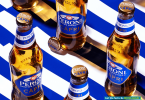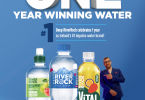Chile tops Ireland’s excise-laden market
Chile retained its position as the top-selling wine country of origin in 2015 selling one in every four bottles of wine purchased here according to the Irish Wine Association in its annual review, just published.
In growing volume sales from just under 2 million cases in 2014 to 2.17 million cases in 2015, Chile’s share of the overall Irish wine market rose from 23.5% to 25.3% Australia continues in second place for country of origin with sales of 1.55 million cases in 2015, down from 1.58 million in 2014.
Only three other countries saw sales growth here. Spain and Argentina saw a marginal growth in sales but New Zealand grew sales here by 26%.
Wine in the price bracket €9 to €9.99 saw a considerable growth in volume share last year, expanding their share of volume by 6.6% to hold 37.6% of the wine market (MAT to December ’15, up from 31.0% MAT December ’14). This was at the expense of nearly all other price points, according to the IWA report.
Per capita consumption of wine also rose to 16.44 litres from 16.40 litres in 2014.
However females have increased their share of wine consumption from 57% of the wine market in 2014 to 61% in 2015.
Wine was responsible for 27.7% of total alcohol consumption in 2015, up from 27% in 2014, with the on-trade channel, at 19.1%, flatlining with the previous year in terms of share.
The multiples continue to hold the lion’s share of the wine distribution channel, growing share from 48.0% to 48.4%, with discounters slipping slightly from 23.0% in 2014 to 22.5% and symbol groups’ share falling from 11.0% to 10.9%.
Independents again lost share and held 9.9% in 2015, down from 10% in 2014.
Cut the excise call
Total taxes now constitute 54% of a standard €9 bottle of wine but at 35.4%, or €3.19 on a €9 bottle, excise is running 12% higher than in the UK. As a result, the wine trade is experiencing severe problems.
Although wine is responsible for just under 28% of all alcohol sales here, it contributes over 31% of all excise tax on alcohol, pointed out Irish Wine Association Chairman Michael Foley at the launch of this year’s report. Fourteen European countries pay no excise on a bottle of wine.
The Irish Government has increased excise on wine by 62% since 2012 meaning that Ireland has the highest excise on alcohol in the EU. This increase has created significant cashflow problems for distributors and importers as excise is an up-front cost of €38,240 per 1,000 cases.
Michael Foley also pointed out that among the potential negative impacts of Brexit on the industry are that the weak Sterling will likely drive cross-border shopping.
EU League Table: Excise per bottle of wine
| Ranking | Country | Excise per bottle |
| 1 | Ireland | 3.19 |
| 2 | UK | 2.83 |
| 3 | Finland | 2.54 |
| 4 | Sweden | 2.01 |
| 5 | Denmark | 1.17 |
Alluding to the 16% fall in the UK tourism market, he called on government to reverse the excise increases on wine by 15% and he introduced Sergio Soriano Cano, a Spanish wine exporter from Grupo Barón de Ley, the fourth-largest Spanish wine exporter in the Irish market.
Sergio pointed out the obvious temptation for consumers to go to Northern Ireland to buy cheaper wine now. He’d also discussed the Irish excise tax situation with Spanish people thinking of going to Ireland on holiday but who were being put off by the prices there.
“In Spain people tell me that they would love to visit Ireland but the wine is too expensive and we like to have wine with our food,” he explained, “To understand how they feel about the Irish market, imagine going to Spain and paying €18 for a pint of Guinness!”
Michael Foley added, “Excise on wine is totally out of line with our EU neighbours as exemplified by Sergio’s comments today and needs to be addressed. In addition to high excise, the potential negative impact of Brexit is further hitting the wine industry, in particular the weak Sterling driving cross-border shopping.”
Evelyn Jones, Government Affairs Director at the National Off-Licence Association, commented, “Ireland’s high excise exerts huge financial strain on thousands of small businesses across Ireland that sell wine. In order to protect and create jobs and alleviate some of the risks associated with the outcome of the Brexit vote, the Irish Government must support the sector by reducing the excise burden on alcohol by 15%.
“This will not only aid the growth of the Irish Wine sector but will also benefit the consumer, tourism and the hospitality trade.”
The IWA review was launched as part of the Champagne Academy’s annual tasting in the Merrion Hotel, a very rare chance to taste a range of Champagnes at a range of prices.








